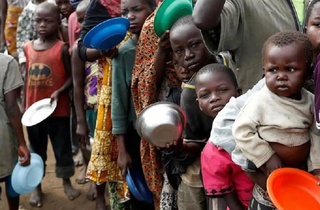Doctors Without Borders/Médecins Sans Frontières (MSF) has sounded the alarm, urging an immediate escalation in lifesaving aid to support refugees and returnees fleeing the Sudanese war and the communities hosting them in South Sudan.
The conflict, which erupted in April 2023, has resulted in one of the world’s largest displacement crises, displacing over 10 million people within Sudan itself. With more than 680,000 seeking refuge in South Sudan since April last year, the strain on local health services and humanitarian aid infrastructure has reached critical levels. By July, an estimated 7 million people are expected to face food shortages amid mounting pressures on health services and aid organizations.
Renk, located in South Sudan’s Upper Nile state near the Joda border crossing, currently shelters around 13,000 refugees and returnees in dire conditions, including severe shortages of food, water, shelter, sanitation facilities, and medical care. Many remain stranded for weeks or months, awaiting transport to continue their journeys or considering return to Sudan.
In the town of Bulukat, near Malakal, thousands more refugees and returnees endure similarly harsh conditions, exacerbating health risks such as diarrhea and respiratory infections due to inadequate food, water, shelter, and sanitation, according to MSF medical teams.
Since the conflict's onset, the number of severely malnourished children admitted to MSF hospitals in Malakal has doubled, underscoring the escalating humanitarian crisis. Malnutrition heightens vulnerability to deadly diseases, particularly among children under five, who face increased risks from infections like meningitis, measles, yellow fever, cholera, and malaria.
Water shortages further compound health risks, forcing residents to rely on untreated river water, heightening the threat of cholera outbreaks—especially alarming with the impending rainy season expected to cause widespread flooding and contaminate water sources.
Aid organizations, including MSF, are struggling to meet the overwhelming needs, operating clinics and mobile units daily but facing limitations in the face of escalating demand. MSF has appealed urgently to international donors for increased funding to support critical needs, including food, water, shelter, sanitation, medical care, and logistical support for continued journeys.
“The humanitarian response remains inadequate given the scale of needs, particularly with the already strained health system,” emphasized Iqbal Huda, MSF head of mission.
International donors are urged to prioritize funding to address the immediate needs of refugees, returnees, and host communities in South Sudan, emphasizing the urgency of the situation amidst escalating conflict across the region. (ILKHA)



 Güncel
Güncel
 Dünya
Dünya
 Güncel
Güncel
 Güncel
Güncel
 Güncel
Güncel
 Dünya
Dünya
 Dünya
Dünya
 Dünya
Dünya
 Güncel
Güncel
 Güncel
Güncel





